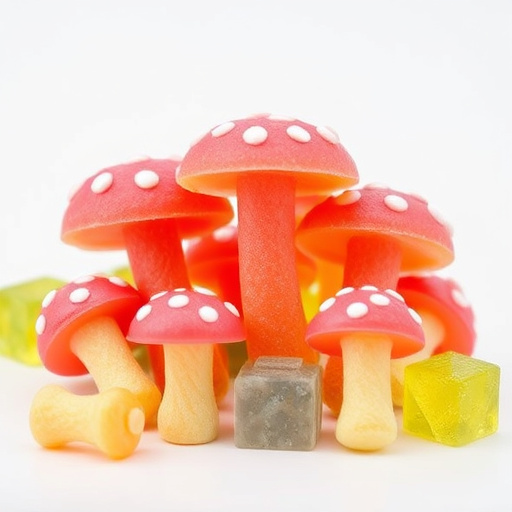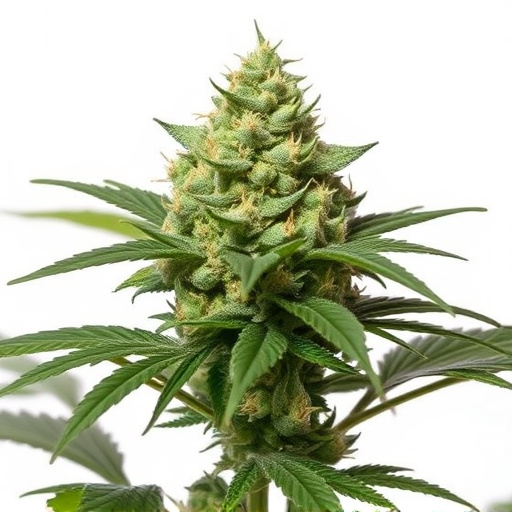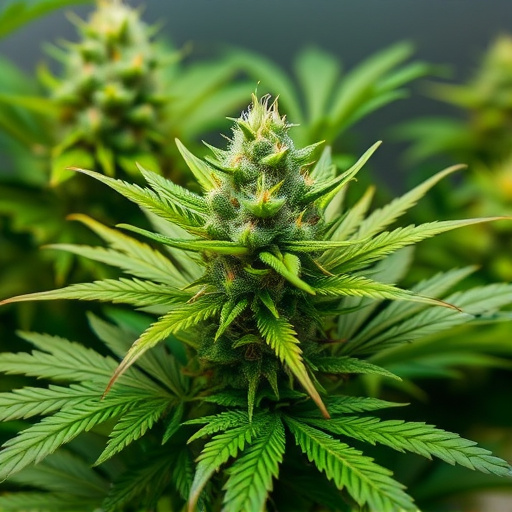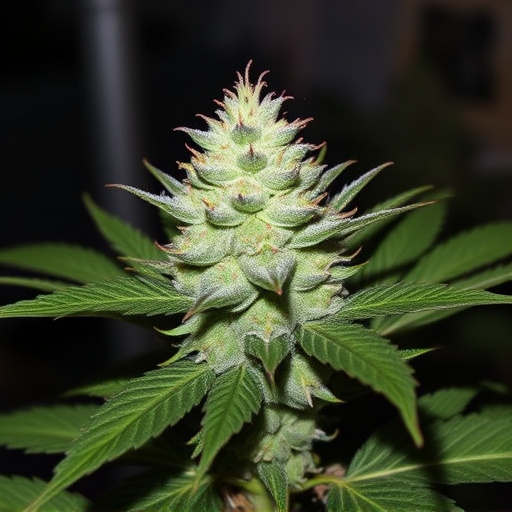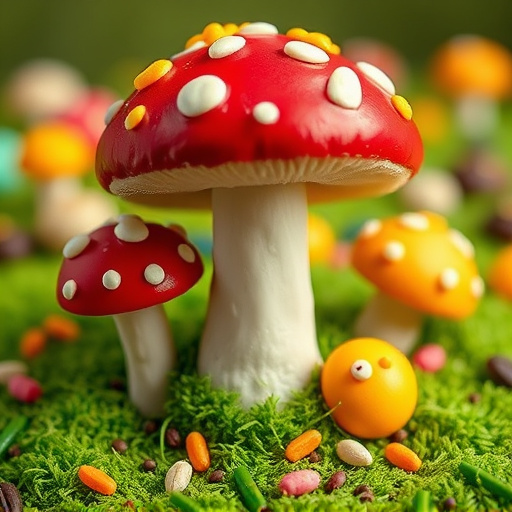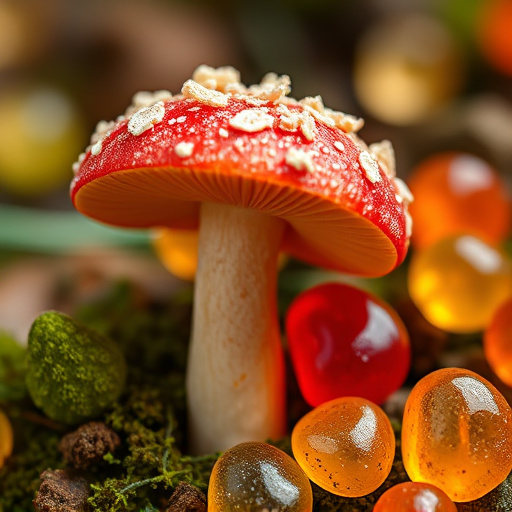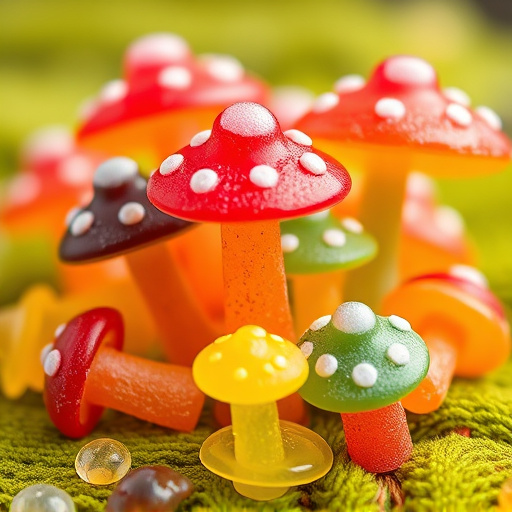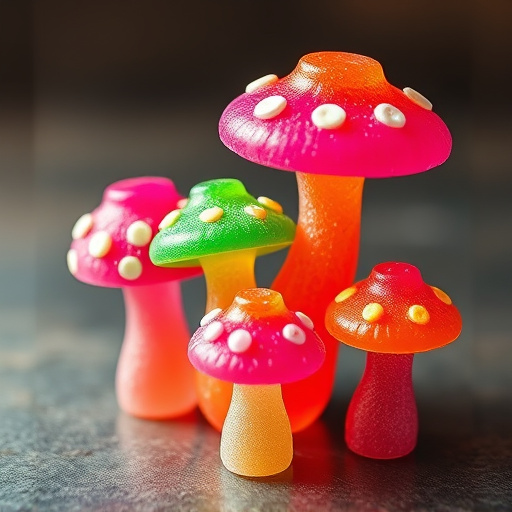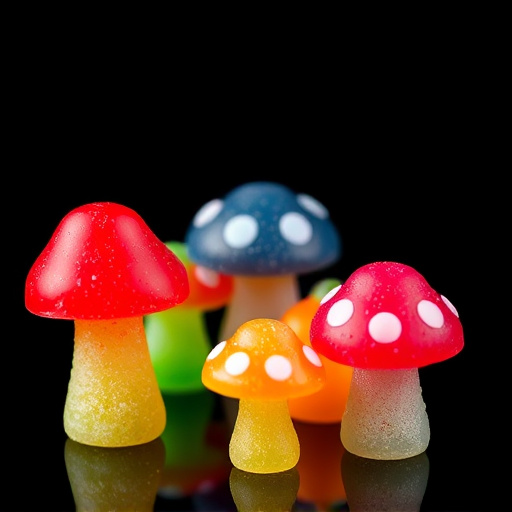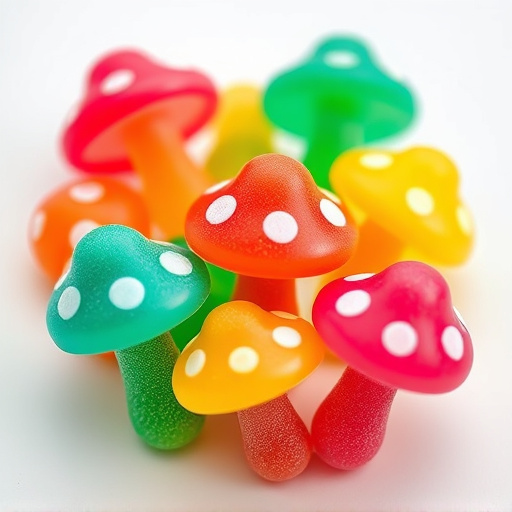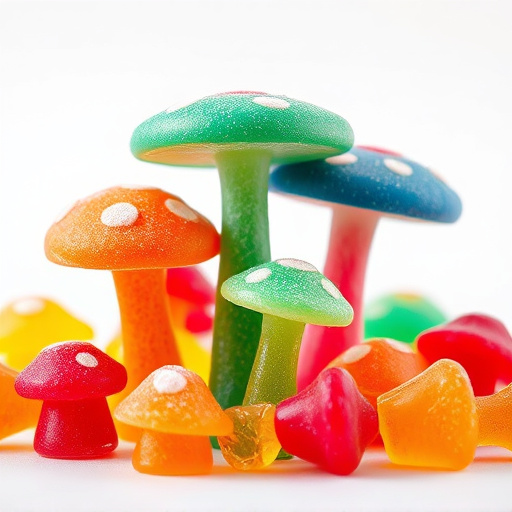Magic Mushroom Gummies represent a modern, precise method for psilocybin therapy, showing promise in treating Post-Traumatic Stress Disorder (PTSD). Infused with the active compound found in psychedelic mushrooms, these gummies offer relief from symptoms like nightmares and anxiety. Early research suggests their effectiveness in processing traumatic memories; however, safety and legal challenges require medical supervision due to potential side effects. Global legality issues further complicate accessibility for vulnerable populations, emphasizing the need for increased research and policy discussions to make this promising therapy widely available.
“Unraveling the therapeutic potential of an unexpected source, this article explores the diverse world of Magic Mushroom Gummies for PTSD Treatment. From understanding their unique composition to delving into cutting-edge research, we provide a comprehensive overview. We examine how these innovative formulations could offer relief for Post-Traumatic Stress Disorder (PTSD) symptoms, shedding light on both the potential benefits and safety aspects. Get ready to discover a novel approach in the realm of mental health treatment.”
- Understanding Magic Mushroom Gummies: A Comprehensive Overview
- Magic Mushrooms for PTSD: Potential Benefits and Research Insights
- The Safety and Legal Considerations of Magic Mushroom Gummies for Treatment
Understanding Magic Mushroom Gummies: A Comprehensive Overview
Magic Mushroom Gummies are a modern twist on traditional psilocybin therapy, offering a convenient and potentially effective way to explore its therapeutic benefits. These gummies are infused with psilocybin, the active compound found in certain species of mushrooms known for their psychedelic effects. However, beyond recreation, magic mushroom gummies have gained attention for their potential in treating various mental health conditions, particularly Post-Traumatic Stress Disorder (PTSD).
In the context of PTSD treatment, research suggests that psilocybin can help individuals process traumatic memories and reduce symptoms associated with the disorder. Magic Mushroom Gummies provide a precise and controlled dose, allowing users to access these therapeutic effects in a way that’s often more accessible and less intense than traditional ingestion methods. This innovative delivery system offers a promising alternative for those seeking relief from PTSD symptoms, potentially opening new avenues in mental health care.
Magic Mushrooms for PTSD: Potential Benefits and Research Insights
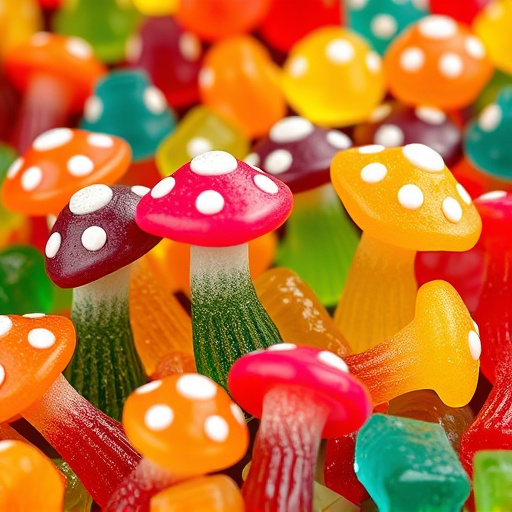
Magic mushroom gummies, a modern twist on traditional psilocybin-containing fungi, are gaining attention as potential treatments for various mental health conditions, particularly Post-Traumatic Stress Disorder (PTSD). Research into the therapeutic effects of magic mushrooms has revealed promising insights. Studies suggest that psilocybin, the active compound in these mushrooms, can help individuals process traumatic memories and reduce symptoms associated with PTSD.
The mechanism behind this potential treatment lies in the way psilocybin interacts with brain receptors, leading to altered states of consciousness and heightened emotional processing. Early findings indicate that controlled doses of magic mushroom gummies could offer a novel approach to therapy, providing relief from persistent nightmares, anxiety, and flashbacks commonly experienced by PTSD sufferers. As research continues to explore this avenue, magic mushrooms for PTSD treatment present an exciting prospect in the field of mental health care.
The Safety and Legal Considerations of Magic Mushroom Gummies for Treatment
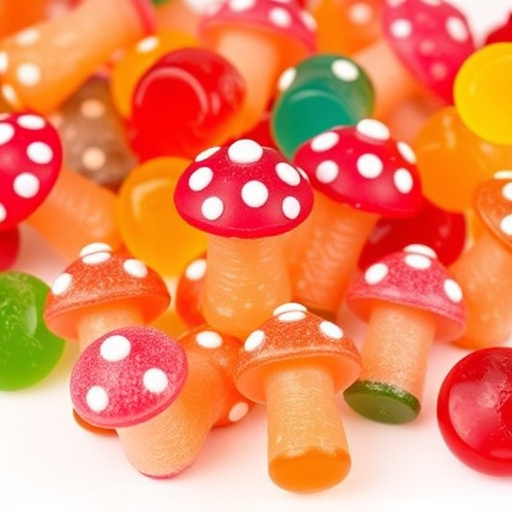
Magic Mushroom Gummies for PTSD Treatment present a promising new avenue in the field of mental health therapy. However, safety and legal considerations cannot be overlooked. The active compounds in magic mushrooms, primarily psilocybin, have shown therapeutic potential in treating post-traumatic stress disorder (PTSD), but their use is not without risks. Side effects may include nausea, anxiety, and heightened trauma memories. Therefore, it’s crucial that any exploration of this treatment method be conducted under controlled, medical supervision to ensure patient safety.
Legality adds another layer of complexity. The status of magic mushrooms varies globally; some countries have legalized psilocybin for medicinal use, while others maintain strict prohibitions. In the context of PTSD treatment, accessibility is hindered by varying legal landscapes, highlighting the need for increased research and policy dialogue to make this potential therapy widely available to those who stand to benefit most, especially veterans and survivors of traumatic events.
In conclusion, while magic mushroom gummies present a promising avenue for PTSD treatment, particularly in conjunction with therapeutic support, it’s crucial to approach their use with caution. Ongoing research is essential to fully understand their efficacy and safety, especially regarding dosage and potential side effects. The legal landscape surrounding psychedelic therapy is also evolving, so staying informed about local regulations is vital. With proper guidance, magic mushroom gummies hold the potential to offer new hope for individuals seeking relief from PTSD symptoms.
